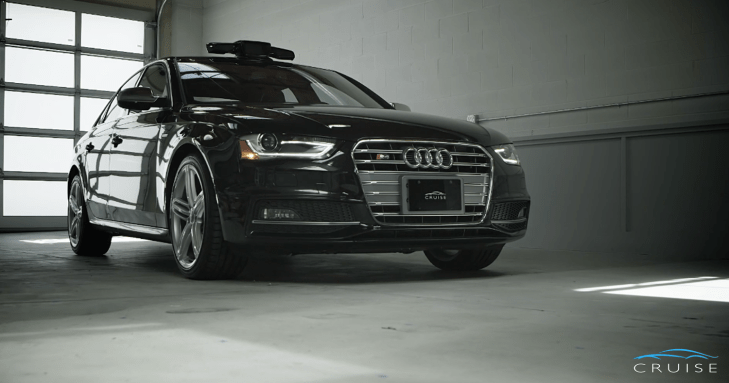From mobile-social video apps to self-driving cars?
Kyle Vogt, one of the founders behind Justin.tv, Socialcam and Twitch, is getting back to his undergraduate research roots in autonomous vehicles with a new self-driving car startup called Cruise. He’s recruited a team of engineers and roboticists from MIT.
The kicker here, though, is that Cruise isn’t making its own self-driving robotic cars in the way that Google has been approaching the space. Cruise has built a system that you can mount on an existing car and use to drive it down highways. It’s more than just standard cruise control, but it isn’t an entirely self-driving car, either.
“Moore’s law makes this possible,” Vogt said, alluding to the Intel co-founder’s theory about increasing computing power. “The computation systems for self-driving cars were large and bulky when I worked on AV in 2004. We would have 10 servers and a rack in the back of a pick-up truck. But that kind of power is now available in your cell phone.”
He added that Google had made a ton of regulatory and cultural headway in the space, as well.
“Because of Google, people are ready. Ten years ago, people would’ve said that this is science fiction. But now, they’re not asking if, but when. There’s a perception that self-driving cars are coming and people are expecting them.”
Cruise’s system has three components. There are sensor units that go on top of the car near the windshield and then there are actuators that control the steering and driving. There’s also a computer that goes in the trunk and takes up about one cubic foot of space.
When you drive onto a highway and merge into a lane, you’ll be able to hit a ‘Cruise’ button on your dashboard. The system will take control of the car’s steering, braking, and acceleration to keep you in your lane. But the system doesn’t take the place of a human driver, so you have to stay alert to make sure you’re following all traffic laws.
TechCrunch writer Colleen Taylor took a test drive below in this video:
The inaugural price of the product is about $10,000 and they’re taking pre-orders for a launch sometime next year. Vogt said for now, the system, called the RP-1, works with just Audi A4s and S4s.
“We realize this price isn’t for everyone,” he said. “The initial system has been expensive to develop.”
They also have to go through additional testing hoops. Vogt said that the automotive industry already has standard practices for testing that it uses on adaptive cruise control systems. Like other self-driving car proponents, Vogt pointed out the moral justification for it in terms of saving lives.
“There are 30,000 deaths a year from car accidents. Ninety percent of those are caused by humans,” he said. “When you put a computer in a car, each one of our systems has this corpus of knowledge from thousands of hours of driving. It never gets distracted and never falls asleep. If we have technology that can compensate for the shortcomings of people, we have a responsibility to do something about it.”
Vogt didn’t reveal funding details about the investors behind his new company.
Here’s its commercial teaser:
